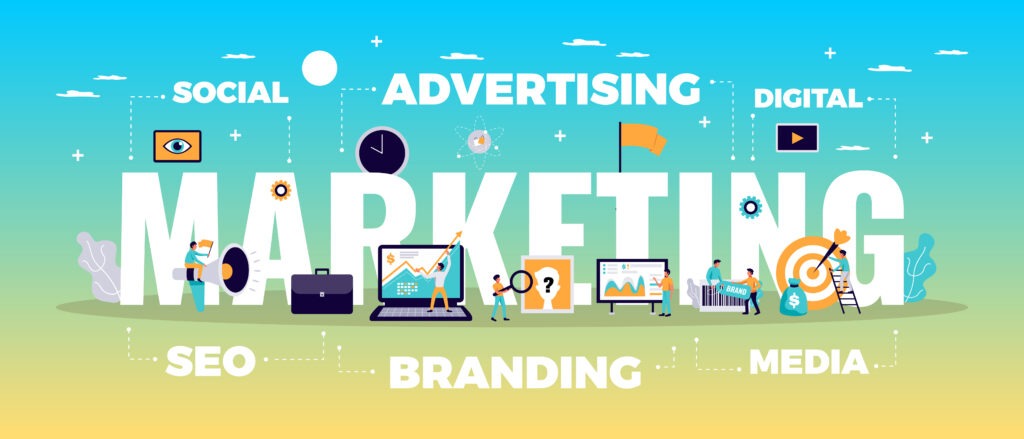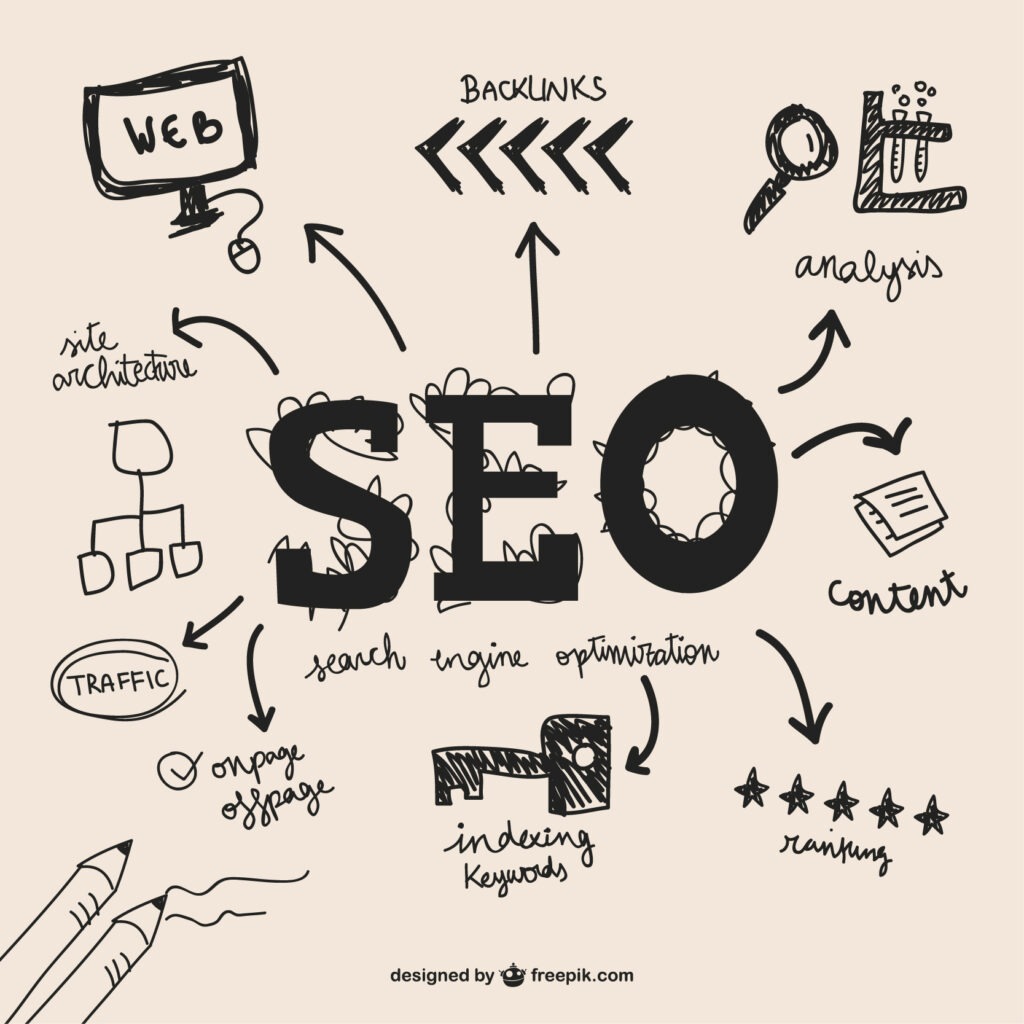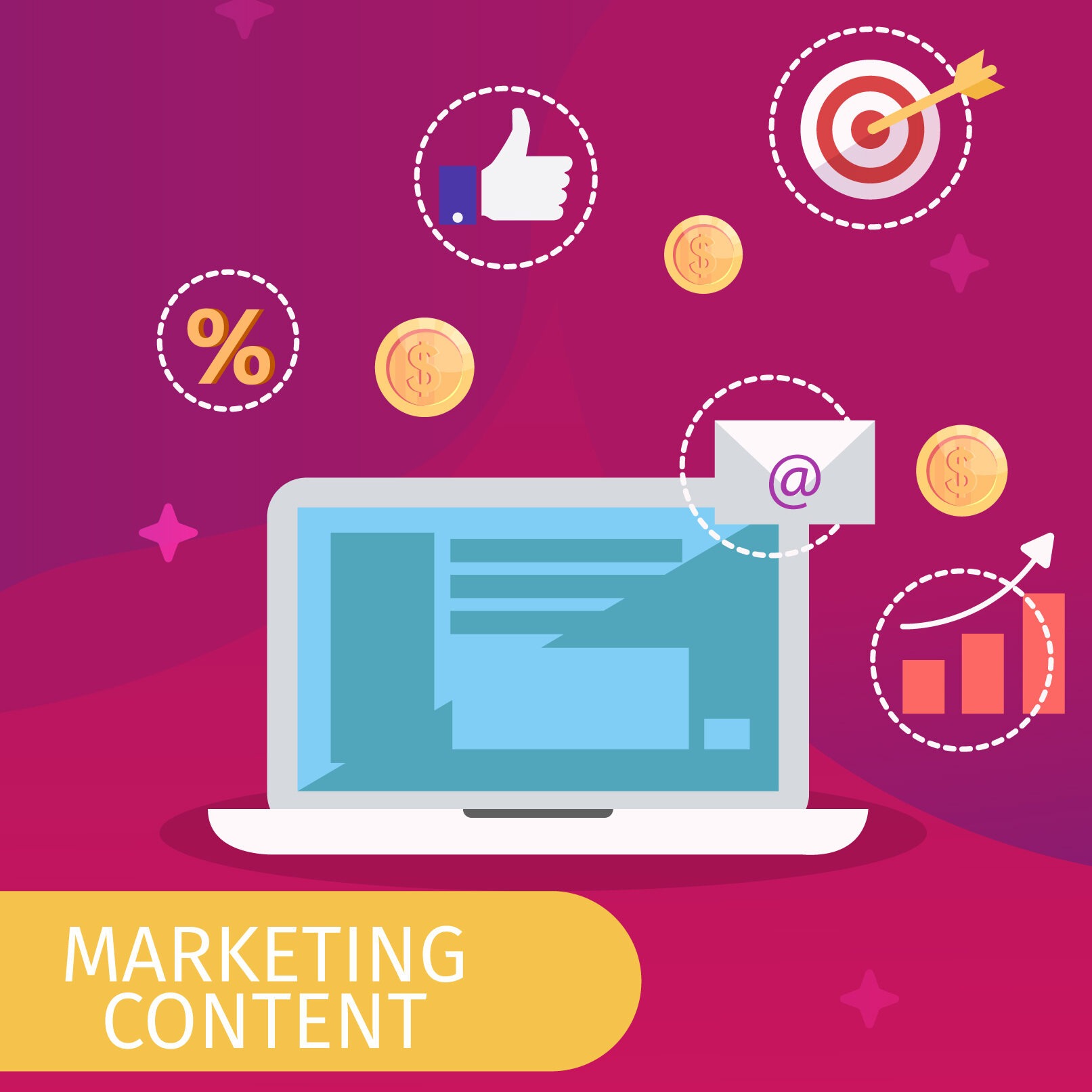What Is Digital Marketing: Explain The Types and Examples

Unlock the potential of your business in the vast digital landscape, where every click can lead to a new opportunity. In a world dominated by screens and connectivity, mastering Digital Marketing is essential. It’s not just about staying relevant; it’s about gaining a competitive edge. Imagine reaching your target audience with pinpoint accuracy, engaging them with compelling content, and converting interactions into loyal customers. Digital Marketing empowers you to do just that, using innovative strategies and real-time data. Ready to transform your marketing approach and achieve unparalleled growth? Let’s dive into the future of marketing.
Table of Contents
What Is Digital Marketing?

Digital Marketing is the art and science of leveraging online platforms to promote products, services, and brands. It encompasses a diverse array of strategies, including search engine optimization (SEO), content creation, social media engagement, and pay-per-click advertising. By utilizing data analytics and innovative technologies, Digital Marketing allows businesses to reach targeted audiences with precision, fostering deeper connections and driving conversions. This modern approach transcends traditional marketing, offering real-time insights and unparalleled adaptability in an ever-evolving digital landscape.
How Digital Marketing Works
Digital Marketing operates through a series of strategic steps designed to maximize online presence and engagement, creating a cohesive and effective approach to reaching and converting audiences:
- Research and Analysis: The foundation of any Digital Marketing strategy is a thorough understanding of the target audience. This involves analyzing demographic data, behavior patterns, and preferences using tools like Google Analytics. By identifying key insights, businesses can tailor their marketing efforts to resonate with their audience.
- Content Creation: Engaging content is at the heart of Digital Marketing. This includes creating blog posts, videos, infographics, and social media updates that provide value and capture interest. High-quality content not only attracts visitors but also encourages them to interact and share, amplifying reach.
- SEO Optimization: Search engine optimization (SEO) ensures that content is discoverable by search engines like Google. This involves optimizing website structure, using relevant keywords, and building backlinks. Effective SEO increases organic traffic by improving search engine rankings.
- Social Media Engagement: Social media platforms such as Facebook, Instagram, Twitter, and LinkedIn are crucial for building brand awareness and engaging with the audience. Regular posts, interactive content, and responding to comments foster a community around the brand, driving customer loyalty and advocacy.
- Paid Advertising: Pay-per-click (PPC) advertising allows businesses to gain immediate visibility by bidding on keywords relevant to their products or services. Platforms like Google Ads and Facebook Ads enable precise targeting, ensuring that ads reach the most relevant audience segments. This leads to higher conversion rates and maximized ROI.
- Email Marketing: Personalized email campaigns are a powerful tool for nurturing leads and maintaining customer relationships. By segmenting email lists and tailoring messages, businesses can send targeted promotions, updates, and newsletters that drive engagement and sales.
- Performance Tracking: Continuous monitoring and analysis are essential to understand the effectiveness of Digital Marketing efforts. Key performance indicators (KPIs) such as click-through rates, conversion rates, and customer acquisition costs are tracked using analytics tools. This data-driven approach allows for ongoing optimization and improvement of marketing strategies.
Types of Digital Marketing Channels
Website Marketing
Website marketing is a pivotal component of Digital Marketing, serving as the digital storefront for businesses. A well-optimized website captivates visitors, turning casual browsers into loyal customers. Through meticulous SEO practices, engaging content, and intuitive design, website marketing enhances user experience and boosts search engine rankings. By integrating analytics, businesses can track visitor behavior, refine strategies, and achieve higher conversion rates. Effective website marketing not only attracts organic traffic but also establishes a strong online presence, crucial for thriving in today’s competitive Digital Marketing landscape.
Pay-Per-Click Advertising
Pay-Per-Click (PPC) advertising is a cornerstone of Digital Marketing, offering businesses immediate visibility and targeted reach. In PPC campaigns, advertisers bid on keywords relevant to their products or services, paying a fee each time their ad is clicked. This method ensures that marketing budgets are spent efficiently, as businesses only pay for actual engagement. Platforms like Google Ads and Bing Ads enable precise audience targeting, maximizing the impact of marketing efforts. By analyzing click-through rates and conversion metrics, companies can continually refine their strategies, making PPC a dynamic and powerful tool in the Digital Marketing arsenal.
Content Marketing
Content marketing is a pivotal facet of Digital Marketing, focusing on creating and distributing valuable, relevant content to attract and engage a target audience. This strategy goes beyond mere advertising, aiming to educate, inform, and build trust with potential customers. By leveraging various content forms—blogs, videos, infographics, and social media posts—businesses can establish authority and foster loyalty. High-quality content not only drives organic traffic but also enhances SEO efforts, making it an indispensable tool in the Digital Marketing toolkit. Effective content marketing cultivates long-term relationships, ultimately leading to increased conversions and sustained business growth.
Email Marketing
Email marketing is a potent facet of Digital Marketing, allowing businesses to directly reach their audience with personalized messages. This strategy involves crafting targeted emails that inform, engage, and convert subscribers into loyal customers. With a high return on investment, email marketing effectively nurtures leads through tailored content, special offers, and updates. Automation tools enhance efficiency, enabling precise segmentation and timing. By analyzing open rates and click-through rates, businesses can continually refine their approach. In the realm of Digital Marketing, email marketing stands out for its ability to build relationships and drive sustained engagement.
Social Media Marketing
Social media marketing is a dynamic component of Digital Marketing, leveraging platforms like Facebook, Instagram, and Twitter to foster brand engagement. By creating captivating content and interactive posts, businesses can connect with their audience on a personal level. This strategy enhances brand visibility and drives traffic to websites. Through targeted ads and organic reach, social media marketing can boost customer loyalty and generate leads. Analyzing metrics such as likes, shares, and comments allows for continual optimization of campaigns. In the expansive realm of Digital Marketing, social media marketing stands out for its ability to cultivate vibrant online communities.
Affiliate Marketing
Affiliate marketing is a pivotal strategy in Digital Marketing, where businesses partner with affiliates to promote their products or services. Affiliates earn commissions for driving traffic or sales through their unique referral links. This performance-based approach minimizes risk and maximizes reach. By leveraging the affiliate’s audience and credibility, businesses can expand their market presence and boost conversions. High-quality content and targeted promotions enhance the effectiveness of affiliate campaigns. In the vast ecosystem of Digital Marketing, affiliate marketing stands out for its ability to generate significant returns with a low upfront investment, creating a win-win scenario for both parties.
Video Marketing
Video marketing is a dynamic strategy within Digital Marketing, leveraging visual content to engage and inform audiences. By creating compelling videos, businesses can convey messages effectively and capture viewer attention. Platforms like YouTube, Vimeo, and social media channels serve as powerful mediums for distributing video content. From product demonstrations to customer testimonials, videos enhance brand storytelling and drive engagement. Advanced analytics provide insights into viewer behavior, allowing marketers to optimize their video strategies for maximum impact. In the ever-evolving landscape of Digital Marketing, video marketing continues to play a pivotal role in connecting brands with their target audience.
Text Messaging
Text messaging in Digital Marketing refers to the strategic use of SMS (Short Message Service) to engage with customers on their mobile devices. This direct communication channel allows businesses to deliver timely notifications, promotional offers, and customer service updates. SMS marketing boasts high open rates and quick response times, making it ideal for time-sensitive campaigns. By segmenting their audience and personalizing messages, businesses can enhance engagement and drive conversions effectively. With stringent regulations in place to protect consumer privacy, ethical use of text messaging ensures a positive brand reputation and fosters long-term customer relationships.
Digital Marketing Challenges
- Adaptability: Marketers must swiftly pivot strategies to align with emerging technologies and shifting consumer behaviors, ensuring relevance in a dynamic digital landscape.
- Intense Competition: As businesses flock to online platforms, standing out amidst the noise demands innovative approaches and distinctive brand positioning.
- Algorithmic Dynamics: Regular updates to search engine algorithms and social media algorithms necessitate continuous optimization to maintain visibility and reach.
- Data Privacy Concerns: Heightened awareness around data privacy mandates meticulous compliance and transparent communication with consumers regarding data usage.
- ROI Complexity: Calculating the true return on investment across diverse digital channels requires sophisticated attribution models and analytics frameworks.
- Content Overload: Over-saturation of online content underscores the challenge of capturing and retaining audience attention with compelling, valuable content.
- Cybersecurity Risks: Safeguarding digital assets and customer information from cyber threats demands robust security protocols and proactive risk management strategies.
What Is SEO in Digital Marketing?

SEO (Search Engine Optimization) in Digital Marketing refers to the practice of optimizing websites and content to improve their visibility and ranking on search engine results pages (SERPs). It involves various techniques such as keyword research, on-page optimization, and link building to enhance organic traffic from search engines like Google. Effective SEO strategies aim to align with search engine algorithms and user intent, ensuring that websites appear prominently for relevant queries. By achieving higher rankings, businesses can attract more qualified traffic and increase opportunities for conversions, making SEO a cornerstone of successful Digital Marketing campaigns.
What Is Internet Marketing?

Internet marketing, also known as Digital Marketing, encompasses strategies and techniques used to promote products, services, or brands online. It leverages the vast reach and interactivity of the internet to engage with potential customers across various digital channels. Internet marketing includes a spectrum of activities such as SEO, PPC advertising, social media marketing, email marketing, and more. The goal is to create compelling online experiences that attract, engage, and convert users into customers. By harnessing data analytics and consumer insights, internet marketing enables businesses to optimize campaigns and achieve measurable results in the competitive digital landscape.
How Can You Become a Digital Marketer?
- Foundational Knowledge: Begin by acquiring a comprehensive understanding of digital marketing fundamentals, including SEO, PPC, content strategy, and analytics. Formal education, online courses, or industry certifications provide structured learning paths.
- Practical Experience: Apply theoretical knowledge in real-world scenarios through internships, freelance projects, or entry-level positions. Hands-on experience helps in mastering tools like Google Analytics, AdWords, and social media management platforms.
- Continuous Learning: Stay updated with industry trends, algorithm updates, and best practices through blogs, webinars, and networking events. Flexibility and adaptability are key traits in the rapidly evolving digital landscape.
- Specialization: Choose a niche area within digital marketing such as conversion rate optimization, influencer marketing, or marketing automation. Specialization enhances expertise and career prospects.
- Analytical Skills: Develop strong analytical capabilities to interpret data, derive actionable insights, and optimize campaigns for improved performance and ROI.
- Creativity and Adaptability: Cultivate creativity to craft compelling content and campaigns that resonate with target audiences. Adapt strategies based on market dynamics and consumer behavior shifts.
What Skills Are Needed in Digital Marketing?
- Analytical Acumen: Mastery of data analysis tools like Google Analytics to interpret metrics, track trends, and optimize strategies based on actionable insights.
- SEO Expertise: In-depth knowledge of SEO strategies including keyword research, backlink analysis, and on-page optimization techniques to enhance organic search visibility.
- Content Creation: Proficiency in crafting compelling content across various formats such as blogs, videos, and infographics, tailored to resonate with target audiences and drive engagement.
- Paid Advertising: Experience in managing PPC campaigns on platforms like Google Ads and social media, including ad creation, budget management, and performance optimization.
- Social Media Management: Strategic use of social media platforms (e.g., Facebook, Twitter, LinkedIn) to build brand presence, foster community engagement, and analyze audience behavior.
- Email Marketing: Ability to design effective email campaigns, utilizing segmentation, automation, and A/B testing to optimize open rates and conversions.
- Creative Strategy: Innovative thinking to develop unique marketing campaigns that stand out in a crowded digital landscape, leveraging storytelling and visual elements to capture audience attention.
- Communication Skills: Strong interpersonal and communication abilities to effectively convey brand messaging, collaborate with teams, and engage with stakeholders across digital channels.
Digital marketing is not just about technology; it’s about creating experiences that resonate with your audience across every digital touchpoint.
Conclusion
Embracing the evolving landscape of digital marketing requires continuous adaptation and innovation. From harnessing data analytics to leveraging AI-driven strategies, the future of digital marketing is poised for dynamic growth. Brands must prioritize customer engagement and personalized experiences to stay ahead in this competitive arena. By integrating omnichannel approaches and optimizing SEO practices, businesses can enhance their online visibility and drive conversions effectively. As technology advances, staying abreast of emerging trends and consumer behavior patterns becomes paramount for sustained success in digital marketing.





You rocked this subject and have astounding insights. I also work hard in putting together great content about Data Entry, feel free to visit UQ9
Superb layout and design, but most of all, concise and helpful information. Great job, site admin. Take a look at my website 85N for some cool facts about Cosmetics.